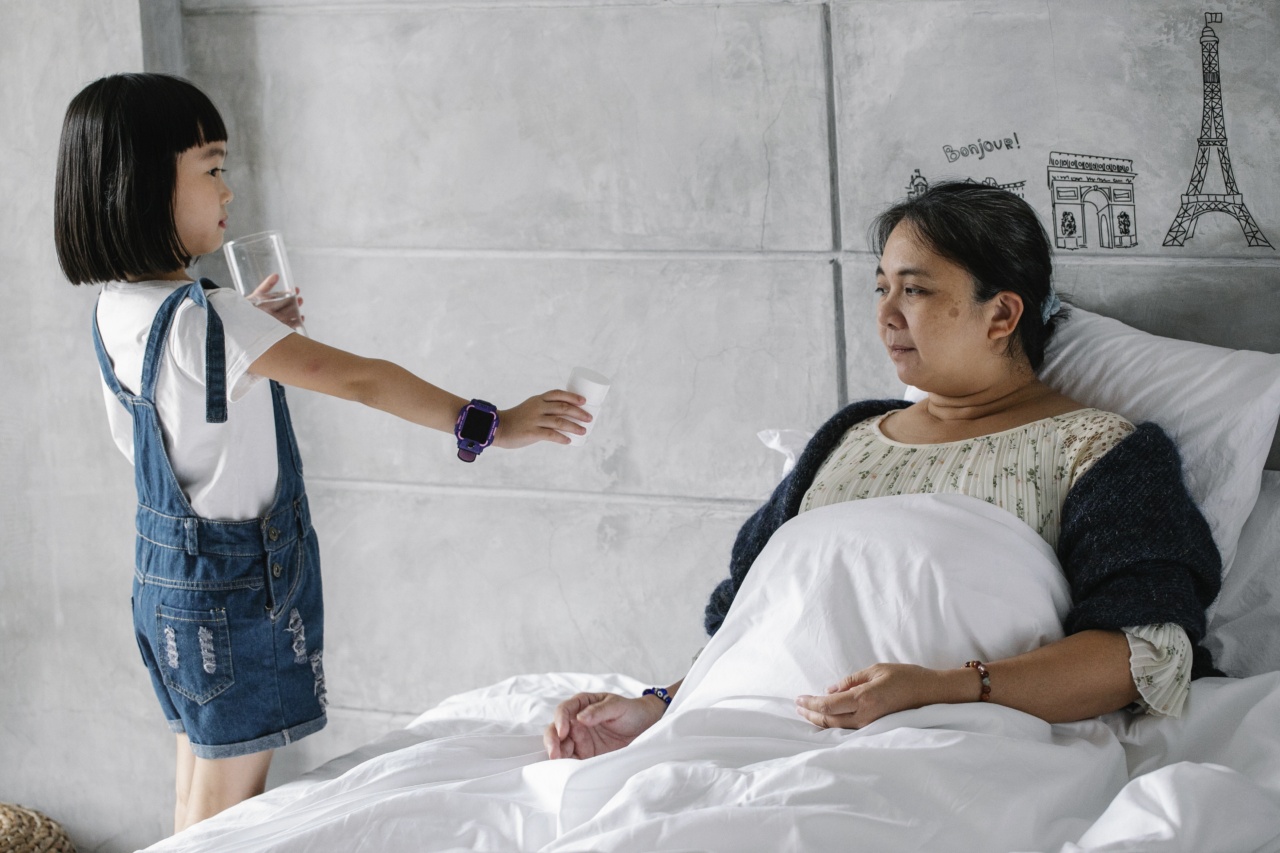Influenza, commonly known as the flu, is a contagious respiratory illness caused by influenza viruses. It affects millions of people worldwide and can lead to severe complications and even death in certain cases.
While the symptoms of influenza can make one feel miserable, it has been observed that these symptoms might worsen in low light conditions, such as the dark. This article aims to explore the potential reasons behind why influenza symptoms may worsen in the dark and provide practical tips to alleviate symptoms in such conditions.
2. The Link between Light and the Immune System
Before delving into why influenza symptoms might worsen in the dark, it is important to understand the link between light and the immune system. Light plays a crucial role in regulating the body’s immune response.
Exposure to natural light, especially sunlight, helps activate specialized immune cells and hormones that contribute to a robust immune response. On the other hand, lack of light or exposure to darkness can potentially disrupt this delicate balance and impact immune function.
3. Melatonin’s Role in Immune Function
Melatonin, often referred to as the “sleep hormone,” is responsible for regulating our sleep-wake cycles. It is naturally produced in the brain’s pineal gland and is highly influenced by light and darkness.
Melatonin levels increase in the absence of light, preparing the body for sleep. However, besides its role in sleep regulation, melatonin also exerts potent immunomodulatory effects. It helps regulate the activity of immune cells and acts as an antioxidant, protecting the body against oxidative stress.
This interplay between melatonin, light, and the immune system might provide insights into why influenza symptoms worsen in the dark.
4. Impact of Low Light Conditions on the Immune Response
Several studies have indicated that exposure to low light conditions can have a negative impact on the immune response.
Researchers have found that reduced exposure to light, especially during the winter months, is associated with an increased risk of respiratory infections, including influenza. One theory suggests that low light conditions suppress the production and activity of immune cells, impairing the body’s ability to fight off viral infections effectively.
Additionally, diminished light exposure may disrupt the body’s circadian rhythm, which can further weaken the immune response.
5. Vitamin D Deficiency and Influenza Symptoms
Another potential factor contributing to worsened influenza symptoms in the dark is vitamin D deficiency. Sunlight exposure is a primary source of vitamin D synthesis in the body.
During the darker winter months, when sunlight exposure is limited, vitamin D levels tend to decline. Several studies have shown a correlation between low vitamin D levels and an increased susceptibility to respiratory infections, including influenza.
Vitamin D plays a vital role in immune function and can modulate the body’s inflammatory response. Therefore, insufficient vitamin D levels resulting from reduced sunlight exposure in the dark may contribute to aggravated influenza symptoms.
6. Alleviating Influenza Symptoms in the Dark
While it may be challenging to completely avoid low light conditions during the flu season, there are several practical tips that can help alleviate influenza symptoms in the dark:.
6.1. Increase Natural Light Exposure
Where possible, try to spend more time in natural light during the day. Open your curtains or blinds to allow sunlight to enter your living spaces. If feasible, go for walks outside during daylight hours.
These measures can help regulate your body’s internal clock and promote a healthier immune response.
6.2. Use Artificial Light in Darker Environments
In situations where natural light is limited, utilizing artificial light sources can be beneficial. Ensure that your working, resting, or study spaces are well-lit to reduce the strain on your eyes and potentially support immune function.
Consider using full-spectrum light bulbs that mimic natural sunlight.
6.3. Take Vitamin D Supplements
Since vitamin D deficiency can worsen influenza symptoms, especially in low light conditions, consider taking vitamin D supplements during the winter months.
Consult with a healthcare professional to determine the appropriate dosage for your individual needs.
6.4. Maintain Good Hygiene Practices
Regardless of the light conditions, practicing good hygiene habits is essential for preventing influenza. Wash your hands frequently, avoid touching your face, and cover your mouth and nose when coughing or sneezing.
These measures can help reduce the risk of viral transmission and lessen the severity of symptoms.
6.5. Seek Medical Advice
If your influenza symptoms worsen or persist in low light conditions, it is advisable to seek medical advice. A healthcare professional can provide you with tailored recommendations and interventions to manage your symptoms effectively.
7. Conclusion
Influenza symptoms can be debilitating, and it appears that they might worsen in low light conditions, such as the dark. The interplay between light, melatonin, and the immune system likely contributes to this phenomenon.
Reduced light exposure can impact immune function and may lead to worsened symptoms.
However, by seeking more natural light, using artificial light sources, maintaining adequate vitamin D levels, practicing good hygiene, and seeking medical advice when necessary, it is possible to alleviate influenza symptoms even in low light conditions.






























